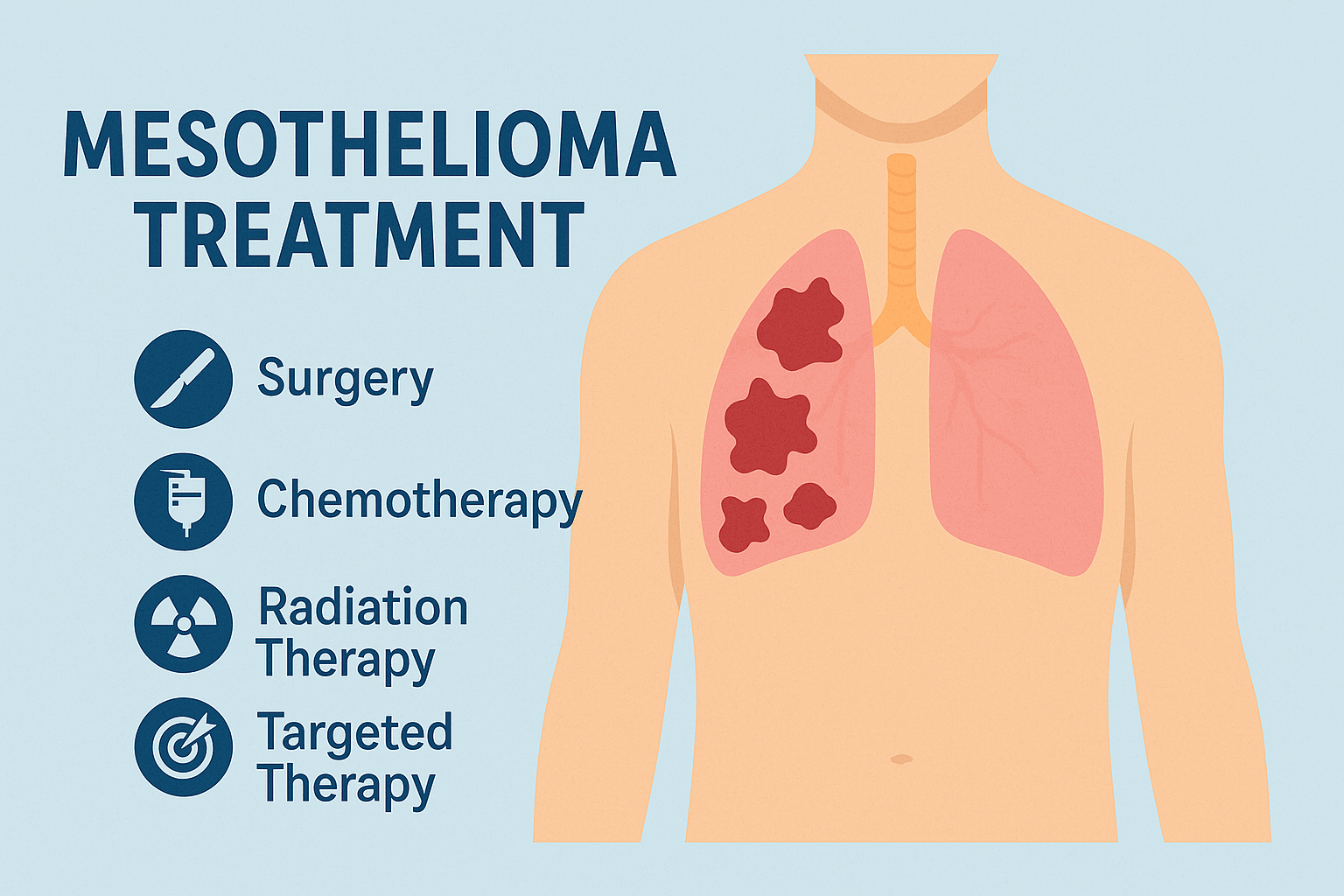Mesothelioma treatment refers to the comprehensive, multimodal medical approach aimed at managing and improving outcomes for patients diagnosed with mesothelioma, a rare and aggressive malignancy originating from the mesothelial cells lining the pleura, peritoneum, pericardium, or tunica vaginalis. Given its strong correlation with asbestos exposure, treatment strategies are highly specialized and personalized, taking into account the histological subtype (epithelioid, sarcomatoid, or biphasic), disease stage, tumor location, molecular profile, and patient performance status.
Modern mesothelioma treatment employs an evidence-based multimodal regimen, typically involving a combination of:
- Surgery (e.g., extrapleural pneumonectomy, pleurectomy/decortication, cytoreductive surgery)
- Chemotherapy (e.g., cisplatin and pemetrexed)
- Radiation therapy (including intensity-modulated radiotherapy and proton beam therapy)
- Immunotherapy (notably immune checkpoint inhibitors like nivolumab and ipilimumab)
- Targeted therapy, gene therapy, and emerging clinical trials
- Palliative care to relieve symptoms and improve quality of life
The overarching objective of mesothelioma treatment is to extend survival, reduce tumor burden, and maximize patient quality of life, all within a patient-centric and often multidisciplinary care framework, including thoracic surgeons, oncologists, pulmonologists, radiologists, and palliative specialists.
